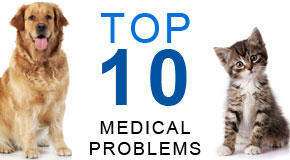Welcoming a new puppy into your home is a joyous occasion, filled with wagging tails, playful antics, and boundless affection. As a responsible pet parent, ensuring your furry friend’s health and safety becomes a top priority. While puppies are resilient and full of energy, they are also susceptible to a variety of common health issues that can impact their well-being. This guide is designed to help you navigate the early stages of your puppy’s life with confidence and care. By understanding potential health risks and learning proactive strategies, you can provide your puppy with a safe and nurturing environment where they can thrive. Let’s embark on this journey together, ensuring your newest family member enjoys a healthy, happy start to life.
Understanding Your Puppys Vaccination Needs
Ensuring your puppy receives the appropriate vaccinations is crucial for their health and well-being. Vaccinations protect against a variety of diseases that can be both common and dangerous. As a responsible pet owner, understanding the vaccination schedule and its importance can make a significant difference in your puppy’s life.
- Core Vaccines: These are essential for all puppies and include vaccines against rabies, distemper, parvovirus, and adenovirus. These diseases are widespread and can be fatal, so timely vaccination is vital.
- Non-core Vaccines: Depending on your puppy’s lifestyle and environment, your vet may recommend additional vaccines such as those for bordetella, Lyme disease, or canine influenza. These vaccines are based on the risk of exposure to specific conditions.
It’s important to follow the recommended vaccination schedule, usually starting at 6-8 weeks of age and continuing through to 16 weeks. Regular booster shots will be necessary throughout your dog’s life to maintain immunity. Consulting with your veterinarian will ensure that your puppy receives the right vaccines at the right time, tailored to their specific needs.

Creating a Safe and Clean Living Environment
Ensuring your puppy thrives in a safe and clean environment is crucial for their health and happiness. A few proactive measures can make a significant difference. Begin by puppy-proofing your home: remove hazardous items such as electrical cords, small objects that can be swallowed, and toxic plants. Make sure all cleaning supplies are securely stored away, and opt for pet-friendly cleaning products to avoid harmful chemicals.
- Regular Cleaning: Vacuum and dust your home frequently to reduce allergens and prevent flea infestations.
- Safe Spaces: Create designated areas where your puppy can play and rest without the risk of injury.
- Proper Waste Disposal: Keep trash bins secured to prevent your curious pup from ingesting something harmful.
Moreover, establish a routine for grooming and bathing to maintain your puppy’s coat and skin health. Regular vet check-ups are also essential to catch any potential health issues early. By maintaining a clean and organized home, you create a nurturing environment that supports your puppy’s well-being.
Feeding Your Puppy for Optimal Health
Ensuring your puppy receives the right nutrients is crucial for their development and long-term health. Puppies have unique dietary needs that differ from adult dogs, and it’s essential to cater to these requirements to support their rapid growth and boundless energy. High-quality puppy food is formulated to provide a balanced diet rich in proteins, fats, vitamins, and minerals. This balance is critical for developing strong bones, a healthy immune system, and a shiny coat.
When selecting food for your puppy, consider the following tips to promote optimal health:
- Age-appropriate food: Choose food specifically designed for puppies to ensure they receive the right nutrients for their stage of growth.
- Portion control: Follow the feeding guidelines on the food packaging, adjusting based on your puppy’s activity level and breed.
- Regular meal times: Establish a feeding schedule to help regulate your puppy’s digestion and prevent overeating.
- Introduce variety: Gradually introduce different protein sources to provide a range of nutrients and prevent food sensitivities.
- Hydration: Always provide fresh water to keep your puppy well-hydrated, especially if they’re eating dry kibble.
By focusing on these key aspects, you can help your puppy grow into a healthy, happy adult dog.

Recognizing Early Signs of Illness in Your Puppy
Keeping a vigilant eye on your puppy’s health can make all the difference in ensuring their well-being. Puppies can’t communicate their discomfort in words, so it’s crucial to be aware of the subtle signs that might indicate something is amiss. Early detection is key to addressing potential health issues before they become serious.
- Behavioral Changes: If your usually playful puppy seems lethargic or uninterested in activities they normally enjoy, it could be a sign they’re not feeling well.
- Appetite Fluctuations: A sudden decrease or increase in appetite can signal a health problem. Pay attention to how much and how often your puppy eats.
- Gastrointestinal Issues: Watch for persistent diarrhea or vomiting, which can lead to dehydration if left untreated.
- Respiratory Distress: Coughing, sneezing, or difficulty breathing can indicate respiratory infections or other underlying issues.
- Physical Changes: Notice any unusual lumps, bumps, or changes in your puppy’s coat or skin, as these could be indicators of health problems.
By staying observant and knowing what to look for, you can help your puppy thrive and catch any health issues early on. Always consult with a veterinarian if you notice any concerning symptoms, as they can provide the best advice tailored to your puppy’s needs.
















